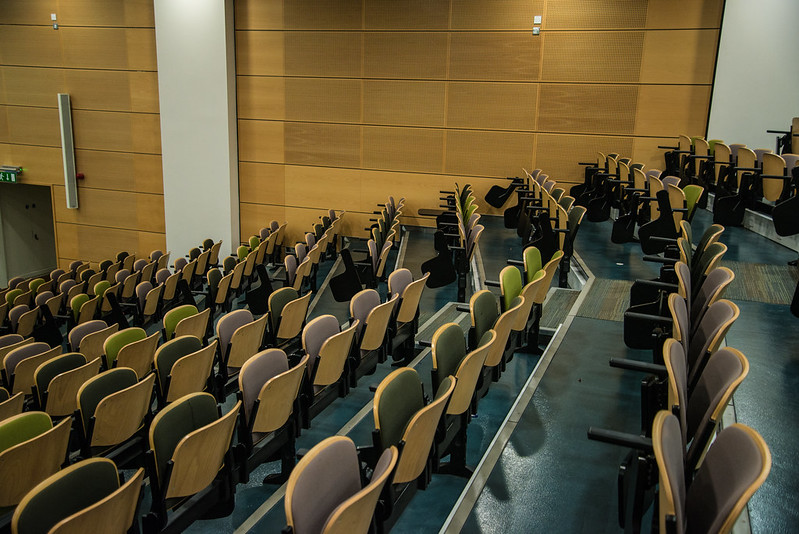The coronavirus has upturned everything we knew for certain about the Trinity experience.
Students and staff alike are now scrambling to understand what happens when everything we thought we needed to go to College – in-person exams, lecture halls, the library – becomes at best not strictly necessary and at worst less useful than some of the tools we can avail of using technology.
In short, the identity of College’s “community” is in crisis.
And today – after this newspaper reported that the College is considering keeping large lectures online until January – we may have gotten a glimpse of what the Trinity experience will look like post identity crisis. It seems that online teaching – rather than being a blip to get us through to next year – could well be here to stay.
And the unthinkable, once tried, has a habit of sinking its claws in.
The shift towards online learning has been happening for years now. Slowly books are being made available through the library or lecturers are sticking up the readings on their Blackboard portals. TurnItIn has replaced physically handing in assignments in many departments. Students rely on online resources such as Jstor, Khan Academy and various Stack Exchanges to help them through their studies. Most students by now know how to get their hands on academic books through illegal online channels if they wish.
In 1982, economist and nobel laureate Milton Friedman wrote: “Only a crisis – actual or perceived – produces real change. When the crisis occurs, the actions that are taken depend on the ideas that are lying around.” It seems pretty clear that online learning was the main idea lying around Trinity when the pandemic struck.
But is online learning something we should really celebrate?
Caution is to be advised: a hasty College administration – spurred on by the shiny newness of online teaching, as well as its financial benefits – may wreck many of the things that Trinity students love most.
The pandemic is, on the other hand, giving Trinity a chance to innovate and to catch up with students who have been embracing online learning for years now. Only good can come from that.
However, College must also be careful not to inadvertently impinge on society and club life. It’s cliched to say that what Trinity students learn outside the lecture hall is just as important as what they learn inside – but that doesn’t mean it isn’t true.
Too dramatic a shift towards online learning could starve clubs and societies of much-needed members. Trinity has a rich community that other Irish colleges have failed to create and that is something we need to value moving forward. Online learning may be more convenient but continuing to have a firm presence on campus is key to protecting what makes Trinity special.
Trinity must also bear in mind that online teaching cannot match the benefits of a student physically sitting down with a professor to work out something that is confusing them, and Zoom can’t recreate the types of free-flowing debates that students can have face to face in tutorial rooms.
Post-coronavirus Trinity is going to look different to the Trinity we knew before. This could be a good thing or a bad thing, depending on how much College decides to reign in online learning next year and how much it will keep.
Trinity will most likely have to strike some balance between the two – a happy middle ground between the visions of the hand-wringing luddites and the gleeful technophiles – to maintain the benefits of online learning we have seen and limit the damage that could be wrought on the parts of Trinity that students value.







